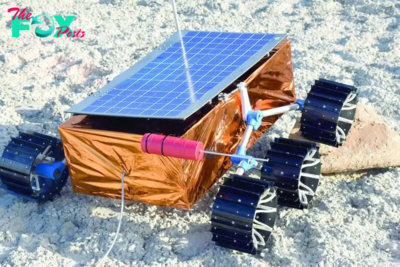Technology
Japan to start building 1st 'zeta-class' supercomputer in 2025, 1,000 times more powerful than today's fastest machines
Japan has announced plans to start constructing the first ever "zeta-class" supercomputer next year. Once fully operational, it will be 1,000 times faster than today's most powerful supercomputers.
The supercharged machine, which could cost more than $750 million to build, will help Japan keep up with the pace of artificial intelligence (AI) development and is expected to be fully online by 2030.
Plans for the new machine — first released on Aug. 28 by Japan's Ministry of Education, Culture, Sports, Science and Technology (MEXT) — reveal that the supercomputer could reach speeds on a zetaFLOPS scale, which has never been achieved before.
Floating-point operations per second (FLOPS) is used to measure how fast computers can solve problems — where one floating-point operation is a single calculation. A supercomputer with a speed of 1 zetaFLOPS could make one sextillion (1 followed by 21 zeros) calculations per second. Today's most powerful supercomputers have only just broken the exaFLOPS barrier, meaning they can make just over one quintillion (1 followed by 18 zeros) calculations per second.
The decision to build such a superpowered machine has been made "in order to keep up with the development of scientific research using AI," Japanese news site Nikkei wrote in a translated article.
Related: Computer inspired by Japanese art of paper-cutting has no electronics and stores data in tiny cubes
The proposed supercomputer is being touted as the successor to Japan's Fugaku supercomputer (0.44 exaFLOPS), which previously held the title of the world's fastest supercomputer until it was dethroned in 2022 by the U.S.'s Frontier supercomputer (1.2 exaFLOPS) at Oak Ridge National Laboratory in Tennessee. Fugaku is currently considered to be the fourth most powerful supercomputer in the world.
-

 Technology15h ago
Technology15h agoGet chronic UTIs? Future treatments may add more bacteria to your bladder to beat back harmful microbes
-

 Technology17h ago
Technology17h ago2024’s final supermoon visible tonight in Pakistan | The Express Tribune
-

 Technology1d ago
Technology1d agoEU fines Meta €798 million for Facebook Marketplace's 'abusive practices' | The Express Tribune
-

 Technology1d ago
Technology1d agoSpain's 'La Vanguardia' exits X, citing rise in toxic content | The Express Tribune
-

 Technology1d ago
Technology1d agoThe Gap Between Open and Closed AI Models Might Be Shrinking. Here’s Why That Matters
-

 Technology1d ago
Technology1d agoDenver Broncos on verge of giving fans faster internet as it installs Wi-Fi 6E at stadium
-

 Technology1d ago
Technology1d agoSUPARCO's rover to explore lunar surface | The Express Tribune
-

 Technology2d ago
Technology2d agoXpeng Aeroht secures 2008 pre-orders for modular flying car at Airshow China | The Express Tribune



























